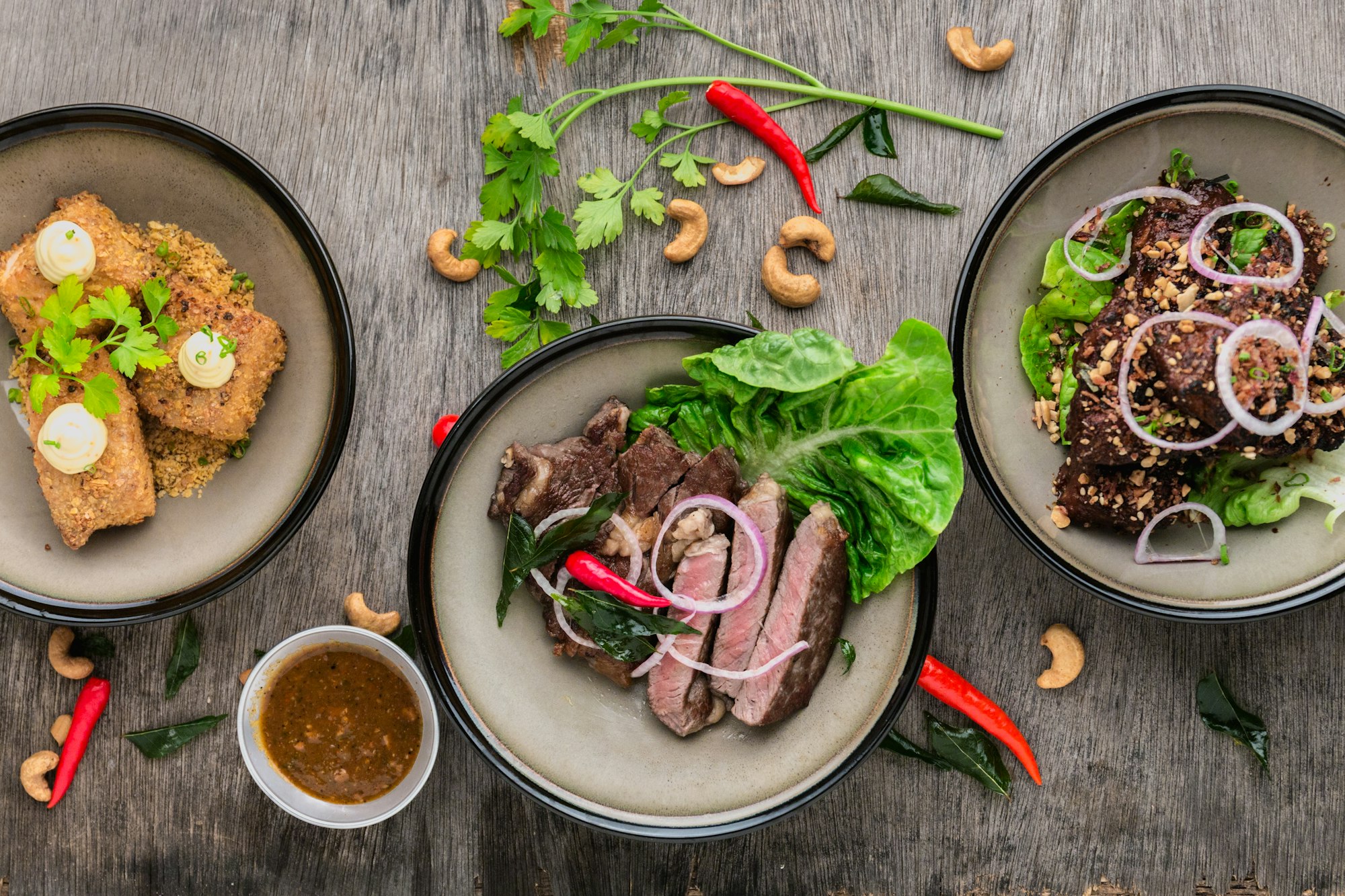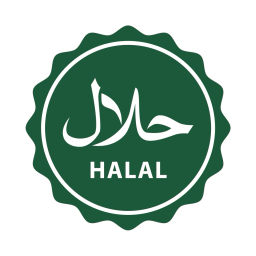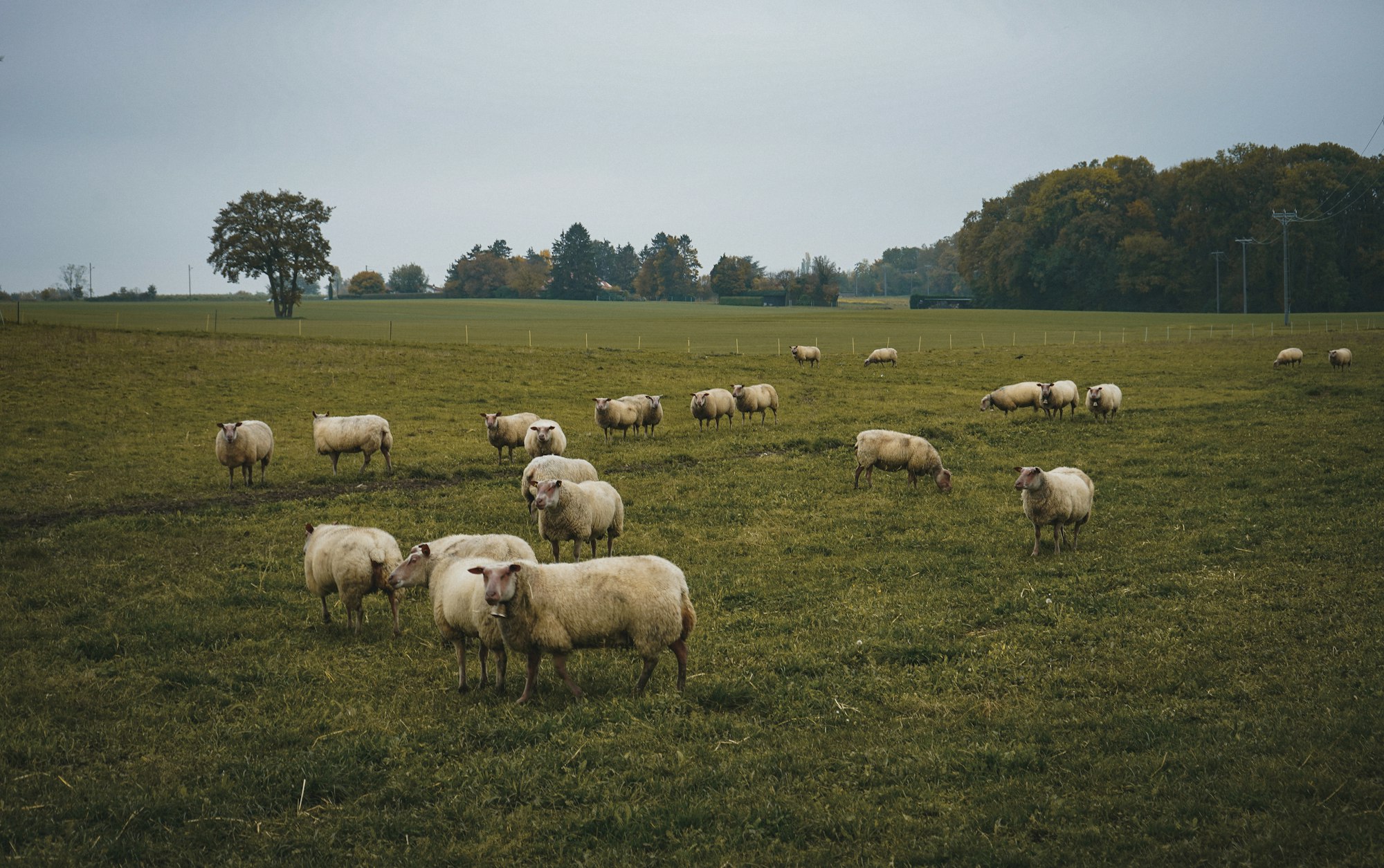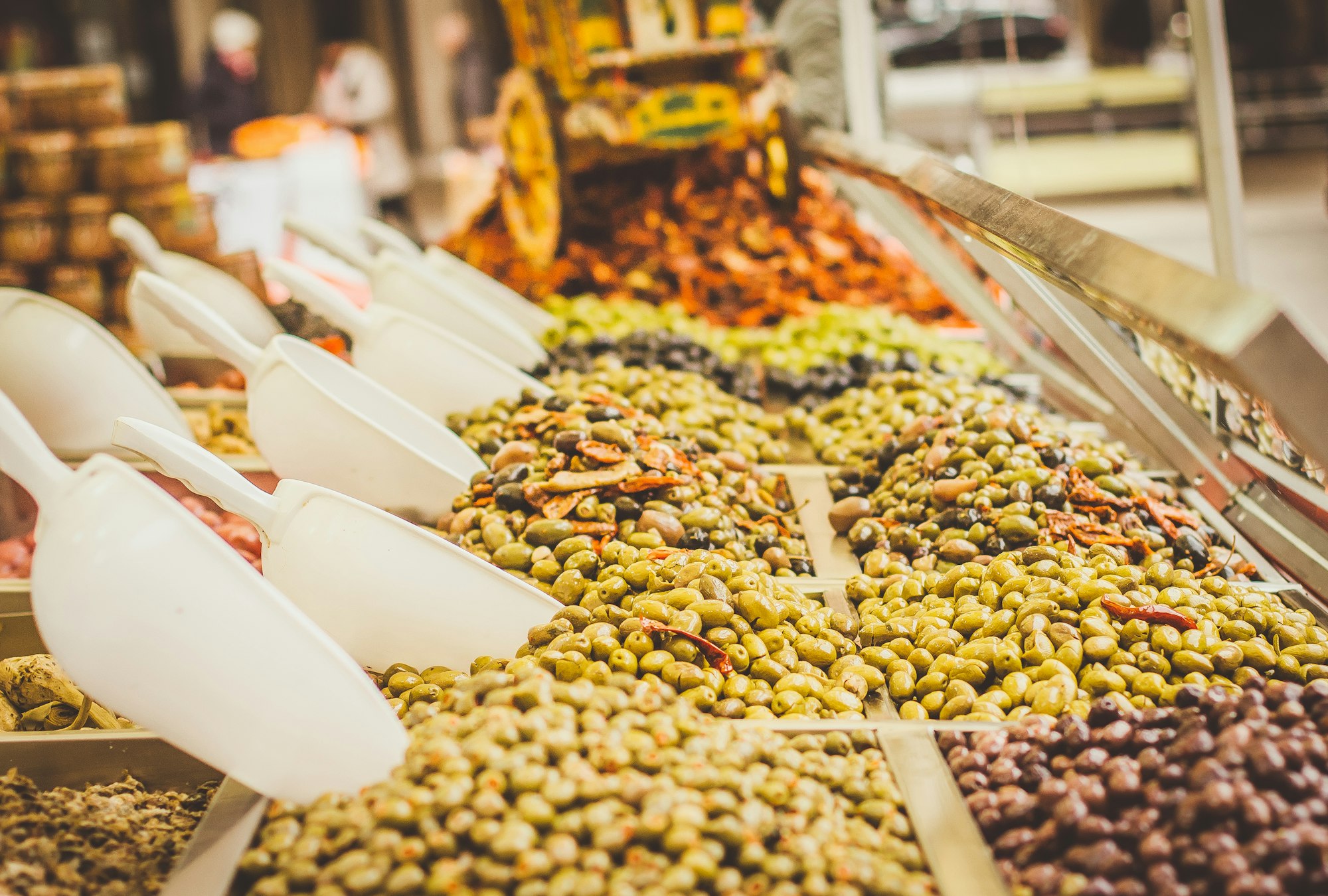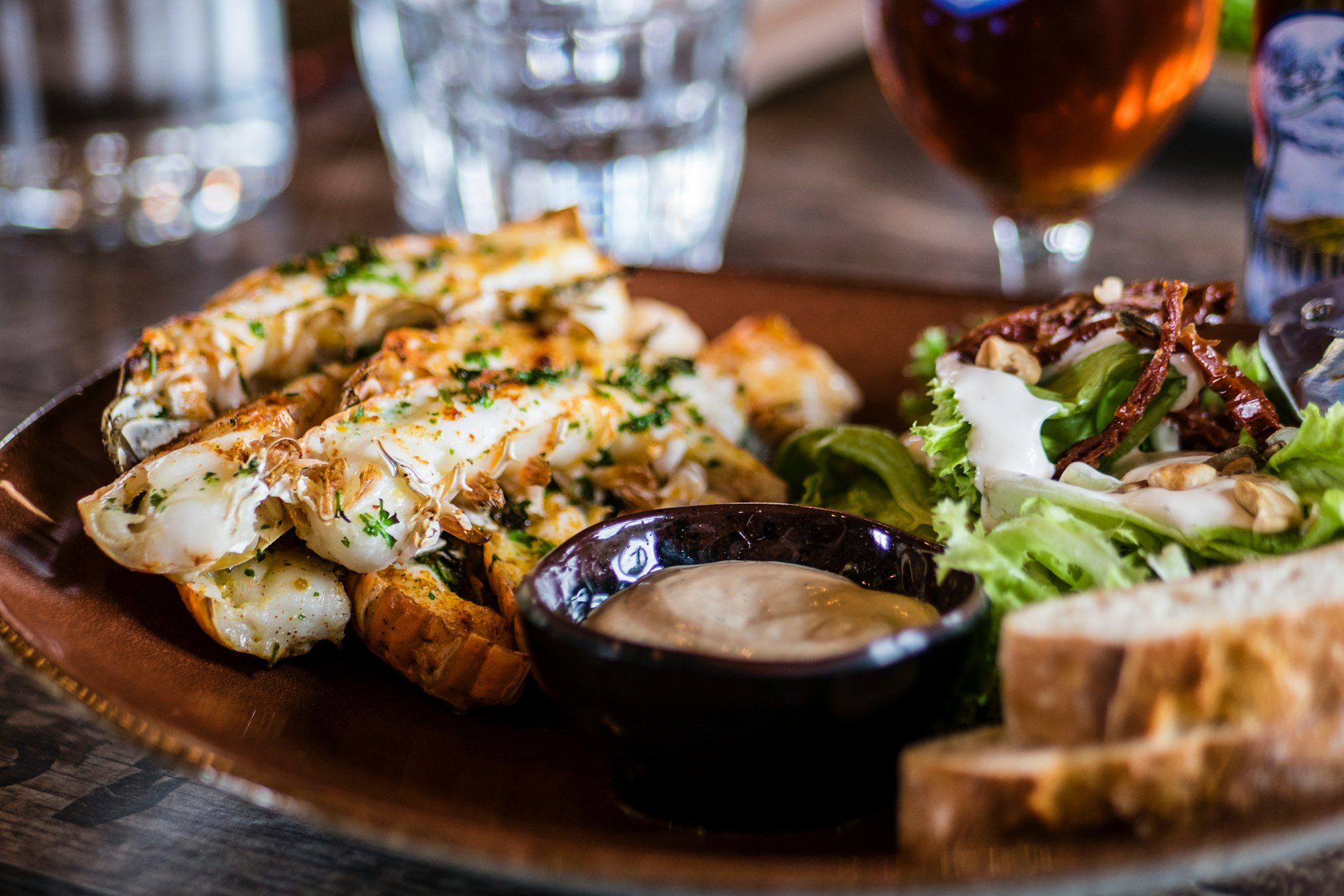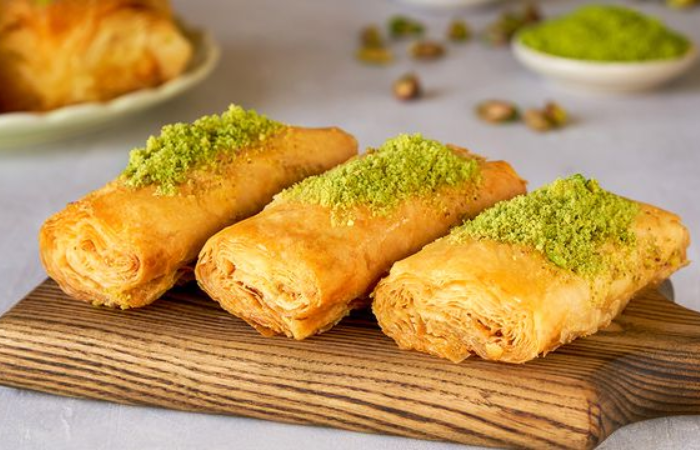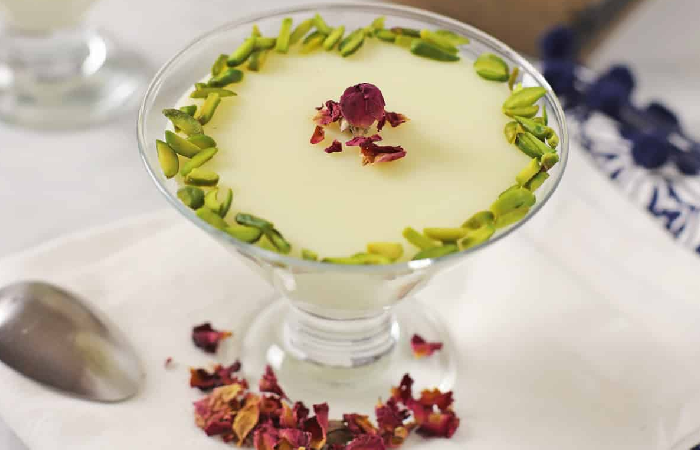The Global Rise of Halal Ice Cream

Ice cream’s universal appeal lies in its irresistible deliciousness. Its creamy texture, sweet taste, and vast flavor options make it a favorite dessert across all age groups. Ice cream’s refreshing taste provides a perfect treat on a warm summer day, while its richness makes it an ideal way to unwind after a long day.
The growth of the halal ice cream market owes its rise to the growing demand for halal food. The halal food market is projected to observe colossal development in the upcoming period, attributable to rising interest from both Muslim and Non-Muslim buyers.
Want to know how this huge market is shaping up and its future? Join us to answer all your queries in this regard.
Overview of the global rise in halal food consumption
Halal foods are very important to Muslim diets since they signify that the food is permitted by Islamic law. Halal offers meals with high standards and certification that are suitable according to Islamic law because Islamic dietary restrictions exclude the intake of pork, alcohol, and other forbidden foods. Even while not all foods are regarded as halal, many food producers seek halal certification to adhere to Islamic dietary regulations.
In 2020, there were 1.9 billion Muslims worldwide. Making up for one of the consumer sectors that is expanding fast. It is estimated that this number will rise to 2 billion by the year 2030. 2060, will see this number projected to 3 billion which amounts to 30% of the world population.
The global market for halal food was USD 2.11 billion in 2021. This market is likely to reach USD 5.91 billion by 2030. Rising at a CAGR of 12.1% over the period of 2023-2030.
Ice cream as a universally popular dessert
Many factors contribute to ice cream's popularity as a dessert. This frozen delight maintains a special place in our hearts, whether it is for the mouthwatering flavor, adaptability, or capacity to unite people.
Ice cream is a tasty and fun treat since it may be soothing and elicit pleasant feelings. Ice cream consumption can bring back pleasant childhood memories and make you feel comfortable and happy.
A happy hormone called thrombotonin that aids in lowering stress levels in the body is stimulated by ice cream. L-tryptophan, a natural sedative that aids in nervous system relaxation is a component of the milk used to make ice cream.
Nearly 22 pints of ice cream are consumed annually by the average American. According to surveys, mint, chocolate chips, cookies and cream, chocolate, and vanilla are the most popular flavors.
What is Ethical Food Consumption?
The process of selecting and consuming food while taking into account the economic, social, and environmental effects of food production and consumption is known as ethical eating. It requires taking into account things like:
Animal Welfare: How are the animals who provide our food treated in terms of animal welfare? Are they being raised in compassionate ways?
Environmental Impact: How much water, energy, and other resources are consumed in the production and delivery of our food? What effect does food production have on biodiversity and climate change?
Impact on society: Are food sector employees adequately treated and compensated? Are the working conditions secure?
Economic Impact: Who benefits from the food system economically? Can small-scale farmers and other producers support themselves?
Halal Food And Its Relation To Ethical Consumption
-
Nutrition, food production, and consumption are considered in the teachings of the Quran, Sunna, and hadith and are guided by the rules of Islamic ethics. Islamic ethics emphasizes food that is good, wholesome, and pure among that which is permissible (halal).
-
Food with this characteristic is called ‘tayyib’ in Arabic and refers to purity both in the physical and moral sense. Islamic guidelines and principles were revealed for human beings as a remedy to preserve inner health and higher well-being.
-
Islamic applied ethics emphasizes the concept of public utility or the common good (maslaha). The concept aims to promote and protect the common good and interest of humankind and prohibit it from what is bad and harmful for the public benefit and welfare. Islamic teachings provide guidelines on specific food codes
-
Ethics aims to safeguard and preserve good health and to prevent any harm to human beings, other living beings, and the environment.
-
Consumer perceptions of halal food demonstrate that Muslim consumers associate halal, its nature, and its technique of processing (involving the ingredients, handling, and use of various methods) from beginning to end – with cleanliness and food safety. Halal is often associated with stricter hygiene and food safety standards.
All these principles of halal food are directly related to Ethical Food Consumption
The Fundamentals of Halal
Halal food is that which is permissible or lawful for Muslims to consume. Halal (also spelled halaal) is an Arabic word that means lawful or permitted.
It is a term that is used in the Islamic religion in contrast with the word haram (which means “unlawful or not allowed”). These terms indicate which life practices are allowed or not allowed for those who practice Islam (Muslims).
While halal refers to much more than just Islamic dietary practices, the term is most often thought of when talking about food, drinks, and other products.
Concerning halal, there are no restrictions on consumption or use. Most foods and drinks are considered to be halal unless they are specifically forbidden by an explicit Qur’anic verse or an authentic Hadith. Human beings cannot forbid halal. The guidelines are divine.
Islam allows all foods and drinks of plant origin, with the following exceptions:
(a) Anything which adversely affects the nervous system, thereby impairing the senses, memory, and judgment. For example, fermented grapes, dates, barley, etc., produce wine, liquor, and other alcoholic beverages. Opium, cocaine, and other such intoxicating drugs.
(b) Anything that harms life and/or health. Example: Poisons.
From a halal perspective, some animals are intrinsically considered non-halal species, for example, carnivorous animals and specific bugs.
-
With advanced food technology, foods and drinks are produced by biotechnological and bioengineering techniques. The techniques are likely to manipulate many genetically controlled characteristics of animals and plants.
-
Specific introduction of genetic material from other cultivars, microorganisms, and species into animals and plants offers the potential to increase production efficiency and enhance the disease and pest resistance of many animals and plants.
-
In biotechnologically produced foods and drinks, it is not only the sources of origin but the processes of manufacture that are to be reviewed by Islamic jurists to determine the permissibility of these products for consumption on a case-by-case basis.
The Islamic values of mercy, justice, and sustainability are the basis of halal morality. Halal food production must be compassionate toward animals, equitable to workers, and considerate of the environment.
Here are some of the main moral guidelines for eating halal food:
Compassion: Halal slaughter must be performed with the utmost compassion for the animal's suffering. The animal must be healthy and alive when it is killed. The process must be completed promptly and with a sharp knife.
Justice: Halal food companies are required to treat their employees equitably. This involves honoring their human rights, giving workers a fair wage, and providing them with secure working circumstances.
Sustainability: It is important to produce halal food in an environmentally friendly way. This entails conserving resources, cutting back on waste, and lowering the effect of food production on the environment.
Halal food intake is additionally constrained by several Islamic ideals, such as:
Tawheed: The conviction that there is only one God, the Creator and Sustainer of everything. A sense of obligation toward all of God's creation, including plants, animals, and the environment, results from this conviction.
Adl: The fairness principle. Muslims must uphold this value by treating everyone equally and compassionately.
Ihsan: The moral precept of performing good deeds. This tenet encourages Muslims to treat all of God's creation with kindness, including animals, plants, and people.

Historical perspective of halal ice cream and its boom
It is believed that ice cream dates back to the second century B.C. Alexander the Great reportedly loved snow and ice that had been sweetened with honey and nectar. Additionally, according to biblical accounts, King Solomon enjoyed cold beverages while harvesting.
Marco Polo brought a recipe from the Far East to Italy over a thousand years later that was quite similar to what is today known as sherbet. In the 16th century, this dish transformed into ice cream. Ice cream appears to have been discovered in England at the same period as Italy, if not earlier. During the 17th century, "Cream Ice," as it was known, frequently made an appearance at Charles I's table.
When Catherine de Medici, an Italian, married Henry II of France in 1553, she imported similar frozen sweets to France. Ice cream wasn't made accessible to the general public until 1660.
Historical Perspective Of Halal Ice Cream
-
Ice cream made using halal ingredients has a long history. The earliest documented recipe for halal ice cream was discovered in an Arabic cookbook from the tenth century. This dish used milk, sugar, rose water, and pistachios and almonds for flavor.
-
Throughout the 16th century, halal ice cream gained popularity in the Ottoman Empire. Ice cream was created at this period using snow from the mountains and was flavored with fruits and nuts. Royal feasts and other major events also featured halal ice cream.
-
Halal ice cream became popular in various parts of the world in the 19th century. It includes countries such as India, Pakistan, and Southeast Asia. By this time, new flavors and ingredients were made available. These include cardamom, saffron, and mangoes.
The Evolution of halal ice cream
Although the essential ingredients of ice cream, such as milk, cream, sugar, and eggs, are all permissible, there are questions because ice cream is a processed dish marketed commercially and may contain a variety of other ingredients.
-
Unacceptable additives in ice cream products can include non-Halal sources of gelatin (for example, in a marshmallow swirl). Ice creams can be made with alcohol that has a maximum alcohol content of 5%.
-
Mono and diglycerides, a result of animal fat, are also found in some ice creams. Although glycerides are not intrinsically forbidden, they must be Halal-certified. Similarly, whey powder, which is occasionally added to processed meals and is made using cow enzymes, needs to be certified as Halal.
-
Ice cream frequently contains food colorings, which may not be Halal or would need to be certified to remove any doubt.
-
These additives are not always Halal since thousands of flavorings can be created from a wide variety of Halal and prohibited substances. Natural tastes may contain elements from plants, which are probably Halal.
-
They may also originate from pork ingredients or from animals that weren't killed by Islamic rites.
-
Similar to pure vanilla extract, alcohol-based flavorings that are diluted and occasionally burned off during manufacture may not be acceptable.
-
Some Halal authorities permit them because they cannot get you drunk when consumed in very small amounts.
-
This depends on how much residual alcohol is present in the final result, while some Muslims believe that even a very small amount taints the entire batch. In either case, the acceptability of the product is questioned by these flavors.
-
All the above factors led to the evolution of halal icecreams which cater to all these concerns.
-
New halal ice cream goods and technologies have accelerated the evolution of halal ice creams. For instance, several businesses have produced lactose-free or plant-based milk ice cream that is halal. Consequently, a wider group of consumers can now purchase halal ice cream.
Boom Of Halal Icecream
With increasing awareness about halal food items, there is a boom in the demand for halal ice creams owing to the following reasons:
• Increasing Muslim population: Approximately 25% of the world's population is Muslims. This percentage is expected to rise in the future. This indicates that there is a rising demand for halal culinary items, such as halal ice cream.
• Rising incomes: In many nations with a majority of Muslims, incomes are rising, which is driving up food consumption. This is also fueling an increase in the desire for ice cream that is halal.
• Greater knowledge of halal food: Non-Muslim consumers are also becoming increasingly accustomed to purchasing halal cuisine. This is brought on by a variety of elements, such as rising interest in ethnic cuisines and increased knowledge of the health and safety advantages of halal food.
By 2033, it is anticipated that the market for halal ice cream will exceed US$3.5 billion. These considerations, along with the growing accessibility of halal ice cream goods in non-Muslim majority nations, are what are fueling this expansion.
The market is anticipated to rise as a result of factors like the rising demand for novel flavors and types of ice cream as well as the rising popularity of impulse purchases of cones, sandwiches, and pops in developing nations. The demand for luxury ice creams is anticipated to increase in the next years due to customers' rising health concern.
Market Statitics And Major Players
At a CAGR of 9.3% over the course of the forecast period, it is anticipated that the global ice cream market for halal products would increase from USD 1.5 billion in 2022 to USD 2.5 billion by 2028.
Increases in the number of Muslims, disposable income, and consumer knowledge of halal goods are all factors contributing to the market's expansion.
The Middle East and Africa are the next two biggest markets for halal ice cream. A significant Muslim population in the region is said to be responsible for the market's expansion in the Asia Pacific region.
Major players
Some of the major players in the global halal ice cream market include:
- Nestle
- Unilever
- General Mills
- Lotte Confectionery
- Al Falah Halal Foods
- Al Islami Foods
- QL Foods
- Saffron Road Food
- Beijing Shunxin Agriculture
- Allanasons Pvt. Ltd.
- Prima Agri-Products
- Hebei Kangyuan Halal Food Company
These companies offer a wide range of halal ice cream products, including ice cream cups, cones, bars, and sticks. They also offer a variety of flavors, such as chocolate, vanilla, strawberry, and mango.
Ethical Treatment of Animals in the Halal Industry
Halal meat differs significantly from conventional meat in numerous important ways. But the way the animal is raised and killed is where the biggest distinction lies.
Any meat that is intended for human consumption can be considered "regular meat,". This is typically mass-produced in animal agriculture as opposed to plant-based or grass-fed cattle. These animals are raised on a smaller scale and are sometimes much more expensive.
The majority of regular meat is fed grain and is also given a number of medicines to promote rapid growth for mass manufacturing.
They can be killed in a variety of ways, but in nations like the US, a slaughtering machine, a captive bolt, electrical procedures, and stun guns are the methods that are most frequently employed to kill animals.
Despite having certain similarities, the following are the key differences between halal meat and ordinary meat:
-
Only meat that is approved for consumption by Islamic law is said to as halal. Good animal products that are halal meat include sheep, cows, goats, and lambs.
-
However, ordinary meat, as well as any dairy product, is not permitted for Muslims to ingest.In Islam, common meats like pork, dogs, monkeys, and snakes are regarded as haram, or unclean, and are not permitted to be consumed.
-
Halal meat cannot be produced with the use of machinery or any other methods recognized by Islam.
-
Islam forbids the consumption of blood, hence the meat must be manually murdered with a razor-sharp knife, with a blessing given before taking the life of the animal.
-
The blood must also be completely drained and cleansed with clean water. In the majority of situations, regular meat is mass processed, and animals are typically slaughtered inhumanely.
-
Using methods like penetrating captive bolts, gas stunning, and electricity in nations like the US. Islam forbids this method of animal killing since it is considered inhumane.
Case Study (Halal-N-Tayyib Farms)
At Halal-N-Tayyib, They strive to provide food that we are proud to offer to our families—food that is cultivated ethically, sustainably, and in accordance with Allah's magnificent plan. They think there is a better way, a greater calling if you will, and that what we consume ultimately determines who we are or become.
It takes time and money to sustainably raise high-quality beef. With the highest level of openness possible, Halal-N-Tayyib Meat Shares manufactures and offers direct access to small, independent, like-minded farmers.
They're dedicated to offering it at a fair price so you may discover and savor the greatest meat that is affordable while also helping the farmers who produce it.
We appreciate being a part of the neighborhood and able to help and feed our friends and neighbors. We're dedicated to giving you and your family the best meat available. Meat farmed ethically not only tastes better but is also healthier for you.
There's a strong chance you're not buying what you think you're getting if you don't actually know how your food is grown!
In accordance with the AGW and H.A.W.A.'s Animal Welfare Standards, we pasture-raise and herd our animals. We produce quality Halal Tayyib pasture-raised organic chicken, lamb, and beef directly from our farms to your door, working with our partner farmers to deliver the best in all-natural nutrition and care.
- You can get halal, healthier commercial meat from our grass-fed animals because they aren't given growth hormones, steroids, or antibiotics.
- They collaborate with farms that recognize that producing high-quality meat starts at the source.
- Animals enjoy wholesome, abundant pastures to graze on because the land and water are first taken care of.
- Antibiotic use is avoided or severely restricted, and there are no extraneous chemicals or hormones.
- With the help of this symbiotic, regenerative method, farms may coexist peacefully with their surroundings while also providing stress-relieving, morally and humanely treated animals.
- You'll benefit from using these tried-and-tested farming methods. large quantities of Omega-3 and Omega-6 fatty acids, as well as less saturated fat, are found in meat raised in pastures.
- Furthermore, it tastes better than anything you've ever experienced with powerful flavors, gorgeous colors, and amazing tenderness.
Emphasis on Earth Friendly Practises In Halal Industry
As Muslims become increasingly conscious of their environmental obligations, the halal business is placing an increasing emphasis on environmentally friendly procedures. This is brought on by a variety of factors, such as:
Islamic environmental stewardship teachings: Islam places a strong emphasis on preserving the environment and coexisting with nature. Numerous verses and teachings in the Quran and Hadith exhort Muslims to take care of the planet.
Awareness about Environmental issues and climate change: Muslims are aware of the issues brought on by environmental harm and climate change. As a result, there is a rise in interest in halal products and services that are produced responsibly and with minimal impact on the environment
Rise of ethical and sustainable consumption: Consumers of all faiths are increasingly gravitating toward ethical and sustainable consumption. Muslims are increasingly looking for halal products that are produced in a way that is healthy for the environment and society, and this trend is being observed in the halal business as well.
The halal business can lessen its environmental effect in a number of ways, including:
-
Halal food producers can adopt sustainable agricultural methods to cut back on their usage of water, pesticides, and fertilizers. Additionally, they can back fair trade and organic farming.
-
Food waste is a significant environmental issue. By optimizing their production and distribution processes, halal food companies can contribute to the reduction of food waste. Additionally, they can give their extra food to food banks and charities.
-
Utilizing renewable energy sources, such as solar and wind power, will help halal food producers lower their carbon impact.
-
Halal food companies can reduce packaging waste by adopting recyclable and environmentally friendly packaging materials. They can reduce the quantity of packing that is used.
The Ice Cream Brands Promoting Organic And Sustainable Farming
Here are some instances of halal food manufacturers emphasizing environmentally friendly procedures:
Saffron Road: Saffron Road cuisine is a firm that produces halal cuisine and is dedicated to sustainability. The company derives its meat from animals that have been treated ethically and employs organic and fair trade ingredients.
Additionally, Saffron Road Food employs recyclable materials for packaging.
Amana Food: Another halal food manufacturer dedicated to sustainability is Amana Foods. The company derives its meat from animals that have been treated ethically and employs organic and fair trade ingredients. In its manufacturing facilities, Amana Foods also uses renewable energy resources.
Halal Guys: A well-known halal fast food restaurant, Halal Guys is starting to focus environmentally friendly methods. The business has started using packaging and serving ware that can be composted. Halal Guys is also making an effort to cut down on food waste.
These are only a few instances of halal food producers who place an emphasis on environmentally friendly procedures. More businesses are likely to follow suit as demand for sustainable halal products rises.
Fair Trade Practises:
Sustainable local development is made possible through Fair Trade. It provides farmers and farmworkers direct access to international markets. The tools and resources they need to prosper are also provided.
-
The development of health, education, and women's programs that help an estimated five million people globally has been made possible by Fair Trade.
-
This has given farmers the power to earn much greater salaries. The people of developing countries are helped by fair commerce.
-
Although it isn't a charity, it provides a much-needed boost in regions where the world economy has failed.
-
Farmers can invest in their farms and communities. They learn to safeguard the environment, and acquiring the business skills required to compete in the global market.
-
Farmers and farmworkers who are certified by Fair Trade can help themselves escape poverty.
-
In contrast to the capitalistic trading system, which erects barriers to preserve the status quo, this model promotes free commerce.
-
Farmers who would not otherwise have access to international markets benefit from fair trade.
The best framework will be to compare and contrast the guiding principles of Islam and Fair Trade in order to comprehend the parallels between the two. There will be a related Qur'anic verse or Islamic teaching that addresses the issue along with the chosen principles.
Just And Equitable Practises In Islamic Teachings
Islamic teaching emphasizes the importance of just and equitable actions because they represent Allah's qualities of justice, equity, and fairness. Muslims are obligated to strive to achieve justice and equity in all spheres of their lives in order to imitate the qualities of Allah.
Numerous verses and teachings in the Quran and Hadith stress the value of fairness and equity.
In the Quran, for instance, it is said that "Allah commands justice, the doing of good, and giving to kith and kin; and forbids all shameful deeds, and injustice on any account: He admonishes you, that you may take heed" (Quran 16:90).
The International Fair Trade Association (IFAT) establishes the requirements that Fair Trade businesses must adhere to on a daily basis.
As stated above, the first principle mandates openness and responsibility: "And give full measure when you measure, and weigh with a balance that is straight" (Qur'an, 17:35).
This highlights how important it is to be truthful and open in all of your interactions.
In verse 62 of the Qur'an it is written, "And we task not any person except according to his capacity, and with us is a record which speaks the truth, and they will not be wronged" (Qur'an, 23:62).
The promotion of fair trade and the payment of a fair price are mandated by these principles.
These principles call for the promotion of fair trade and the payment of a fair price. This emphasizes the necessity of both power and responsibility for everybody , buyers and sellers alike.
The Hadith also includes numerous lessons on equity and justice, including the following statement from the Prophet Muhammad: The best people are those who are most beneficial to others
A harmonious and just society must prioritize justice and equity. People are more likely to feel respected and valued when they are treated fairly and equally. Everyone in society may benefit from more collaboration and trust as a result of this.
Concrete instances of just and equitable conduct in Islamic teaching are provided below:
Zakat: Zakat is a type of required donation that affluent Muslims pay in order to help the needy and destitute. In order to redistribute wealth and guarantee that everyone in society has access to basics, zakat was developed.
Social Justice: Islam believes that regardless of color, nationality, gender, or social standing, all persons are created equal in the eyes of Allah.
Economic Justice: Islamic teachings assert that everyone has the right to a decent standard of living and the ability to take care of their fundamental necessities. Muslims must avoid taking advantage of people in their economic dealings and act fairly and honestly.
Environmental stewardship: According to Islamic teachings, Muslims have a duty to preserve the environment. Muslims must conserve natural resources and refrain from harming the environment.
A harmonious and just society must, in general, be built on just and equitable behaviors. Islamic doctrine places a strong emphasis on the value of justice and equity and offers Muslims instructions on how to apply these values to their daily lives.
A mindset that views all people as brothers and sisters is required by Islam. This reinforces the idea that it is forbidden in Islamic teachings to advance at the expense of a sibling or brother.
How the halal certification process encourages fair wages and ethical business standards
Halal Certification is essential for businesses for various reasons . A few of them are enumerated below
Access to a Large Market
Halal certification can open up new markets for businesses. Muslims represent a large and growing consumer group, with an estimated 1.8 billion Muslims worldwide. By obtaining halal certification, companies can tap into this lucrative market and increase their customer base.
Builds Trust and Credibility
Halal certification is evidence of a company's dedication to moral and ethical standards. Companies can gain credibility and confidence from their clients, particularly from the Muslim community, by acquiring halal certification. The certification procedure entails a thorough examination of the whole supply chain to guarantee that the good or service complies with the strictest halal regulations.
Differentiates from Competitors
Halal certification can be a competitive advantage for businesses. Companies need to differentiate themselves from their competitors in today's crowded marketplace. Halal certification can set a business apart by showing its commitment to quality and ethical standards.
Enhances Brand Reputation
Halal certification can enhance a business's brand reputation. By obtaining halal certification, companies can show their commitment to social responsibility, environmental sustainability, and ethical business practices. This can help build a positive image and reputation for the business, particularly among consumers who value these qualities.
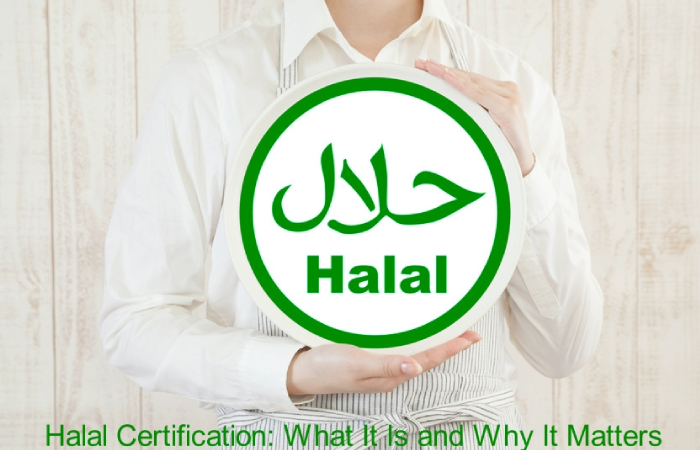
Increases Export Opportunities
Halal certification can increase export opportunities for businesses. Many countries, particularly those with large Muslim populations, require halal certification for imported products. By obtaining halal certification, companies can expand their export markets and increase revenue streams.
Improves Food Safety and Quality
Halal certification can improve food safety and quality. The halal certification process involves thoroughly inspecting and reviewing the entire supply chain, from sourcing raw materials to manufacturing and packaging the final product. This can help identify potential hazards and ensure that the product meets the highest safety and quality standards.
Increases Consumer Confidence
Halal certification can increase consumer confidence in a product or service. Muslims, in particular, are very conscious of what they eat and are likelier to trust and purchase halal-certified products. By obtaining halal certification, businesses can increase consumer confidence in their products and services.
Promotes Moral Behavior
The supply chain is encouraged to use ethical practices thanks to halal certification. Businesses are required to uphold high ethical criteria, such as fair labor practices, animal welfare, and environmental sustainability, as part of the certification process. Companies can promote ethical standards and serve as role models for other businesses by acquiring halal certification.
Halal Certification Encouraged Fair Wages And Ethical Business Standards
The halal certification can promote honest pay and Ethical business practices. In actuality, many halal certification organizations have rigid guidelines regarding labor standards and moral sources.
For instance, the Halal Food Authority of Canada mandates that all accredited companies pay their employees a fair wage and provide them a safe and healthy working environment. Businesses that are accredited must also adhere to all applicable labor laws and have a code of ethics in place, according to the UK's Halal Food Authority.
Many Muslim customers are also interested about fair salaries and ethical business operations in addition to halal certification organizations. According to a Pew Research Center survey, 72% of Muslim Americans value fair labor practices from the businesses they patronize. This shows that there is a significant market for halal goods that are made fairly and ethically.
Benefits To The Community As A Result Of Fair Trade Practises
Here are some examples of how fair trade and halal certification have promoted economic empowerment and improved quality of life:
Millions of people work in Indonesia's halal industry, which is worth billions of dollars. The Indonesian government has made significant investments in halal certification and promotion. This has boosted the economy and helped create jobs.
Fair trade policies have improved the lives of coffee growers and other producers in Africa. By way of illustration, the Fairtrade coffee certification program makes sure that farmers get paid fairly for their beans and have access to social and economic development programs.enhance their standard of living.
The halal food market in the US is expanding quickly. Halal certification is becoming more and more crucial for companies who want to reach the Muslim consumer market. Muslims and non-Muslims alike now have new work prospects thanks to this.
In general, promoting economic empowerment and a higher quality of life can be facilitated by halal certification and fair trading procedures. Halal certification and fair trading standards can aid people in improving their lives and securing a brighter future for themselves and their family.
This is done by fostering job growth, raising income levels, fostering sustainable development, and enhancing access to high-quality goods and services.

The Broader Appeal Of Halal Certification
Ethical Consumption Beyond the Muslim Population
Beyond just Muslims, there are many more groups for whom ethical consumption is crucial.
-
It's crucial to guarantee that all employees receive fair treatment and their legal rights are preserved. This entails paying employees a fair salary, offering them secure employment, preventing child labor and forced labor, and offering them a safe and healthy working environment.
-
The preservation of the ecosystem is crucial, too. This entails picking goods that use renewable resources, are manufactured sustainably, and emit as little pollution as possible.
-
Thirdly, it's crucial to back companies that uphold moral principles and take responsibility for their communities. This includes companies that support sustainable practices, provide fair wages to their workers, and give back to their communities.
Anyone can follow the halal lifestyle; it is not just for Muslims. The halal way is important for more than just religion. Halal cuisine is good for your health, according to scientists. Why would you pick anything else if taste and health are combined into one package?
-
Islam is a way of life. It involves regulating all facets of daily life through laws, conventions, and behaviour. It is more than just a religion. Food regulations are particularly crucial because it is essential for daily life.
-
Muslims are expected to eat in order to maintain their health and stay alive, not just to satisfy their hunger. Like prayer, fasting, paying alms, and other religious rituals, eating is seen as a kind of devotion in Islam.
-
In recent years, halal food products have gained in popularity among both Muslim and non-Muslim consumers.This is because they have evolved to being a representation of hygienic standards, high quality, and sanitation.
-
The launch of products by halal manufacturers for these conscientious consumers, along with the growing interest among non-Muslim consumers in the consumption of vegan food products, is projected to boost market growth.
-
The halal sector has the ability to draw FDI by fostering regional economic expansion and creating job opportunities. The favorable effects of the Halal industry on numerous economic sectors are supported by empirical research.
-
The halal market offers a promising route for boosting the competitiveness of domestic businesses by giving them fresh opportunities to reach unexplored markets and consumers.
-
The business has significantly aided in the creation of jobs in a variety of industries, including food processing, logistics, and distribution. The benefits are particularly noticeable in developing countries where joblessness is pervasive and financial expansion is a key goal.
Halal food's potential to serve as a link to intercultural respect and understanding
-
The way that Halal food has cultivated variety and inclusivity is one of the most alluring features of today's global culture.
-
Muslims are no longer considered to be a monolingual culture as was once thought. The thriving Halal food sector of today is one of the most obvious indicators of this expanding cultural diversity.
-
More and more people are going out to eat and creating their own unique experiences in this multicultural era, whether it's for breakfast, brunch, fast food, lunch, supper, or even at entertainment venues.
-
By enabling Muslims to partake in popular food culture while yet following their religious dietary rules, halal cuisine helps to foster cultural variety and inclusivity.
-
Halal cuisine can be found in many places, including restaurants, supermarkets, and even street vendors. It is also readily accessible.
-
The ability to eat the same foods as their non-Muslim counterparts increases Muslims' sense of inclusion in society and sense of belonging.
Halal is Healthy and Hygenic
-
Halal food is renowned for upholding strict hygienic and nutritional requirements. Strict rules are required by the Halal standards in order to prepare Halal cuisine.
-
In comparison to certain non-Halal options, these regulations guarantee the purity and quality of the food, resulting in a greater level of sanitation and food safety.
-
Food's nutritional value is therefore exclusively dependent on whether it is halal or not.
-
Most mass-produced foods use carefully chosen ingredients to ensure that they are of the greatest quality and free of additives or preservatives.
Rise in Non-Muslims Knowledge of Halal Food
Halal food has changed from being a religious diet choice to a guarantee of secure, wholesome, hygienic, and dependable food as a result of the strict requirements for halal certification.
According to a number of surveys, non-Muslims have a favorable opinion of halal food products and have strong intents to purchase them since they are aware that halal food is properly processed.
Islamic principles are spreading outside of the Muslim world, and non-Muslim customers are increasingly choosing halal goods and services.
Due to rising ethical consumerism, which shares ideals with halal products, halal products, services, and brands are becoming more relevant to non-Muslim consumers thanks to increased consumer awareness.
Halal Food As A Promotor Among Non Muslims
-
Education about Muslim culture and traditions can also be accomplished through halal food.
-
For instance, many non-Muslims may not be aware of the Halal tenets. These forbid the consumption of alcohol and pork and mandate the precise method of animal slaughter.
-
The practices and beliefs of the Muslim community can be better understood and appreciated by non-Muslims when they learn about Halal food.
-
Halal cuisine is easier to find in almost all restraunts across the globe. It is anticipated that demand will rise as more people become aware of Halal food.
-
There are several restaurants that particularly include Halal dishes and ingredients on their menus so that customers may quickly locate what they're looking for.
-
Halal and other ethnic cuisines are frequently made utilizing conventional cooking techniques that place an emphasis on using natural ingredients and little processing, which adds to their healthy quotient.
Non Muslims Inclination Towards Halal Ice Cream
While Muslims are the majority consumers of halal ice cream, many non-Muslims are also making the ethical decision to purchase it. Some of the explanations are as follows:
Fair labor practices: Halal certification agencies frequently demand that firms that are approved pay their employees fairly and offer them a safe and healthy working environment. This is consistent with customers of all faiths' increased demand for ethical and environmental consumption.
Sustainable agricultural and animal husbandry practices are mandated by several halal certification authorities for firms seeking certification. This is consistent with consumers' increased concern about environmental responsibility.
Animal welfare: Halal practices demand that creatures be killed humanely. This is consistent with ethical consumers' increased concern over animal welfare.
Transparency and accountability: Organizations that certify businesses as Halal must adhere to strict guidelines and be open and honest about their products, production processes, and employment policies. This is in keeping with the rising consumer desire for accountability and openness.
Misconceptions About Halal Food
Halal foods and practices are misunderstood in many ways. Here are some of the most widespread myths and solutions to them:
1. Misconception: Muslims alone can eat halal cuisine.
Fact: The term "halal" simply refers to food that has been cooked in line with Islamic law. This indicates that it is devoid of alcohol, pork and items derived from pork, and other impurities. No matter your religion, eating halal food is secure and nutritious.
2. Misconception: halal food isn't as tasty or nourishing as food that isn't halal.
Fact: Halal food can be just be as delicious and nourishing as non-halal food. In fact, a lot of halal food products are prepared with premium ingredients and conventional cooking techniques.
3. Misconception: Halal slaughter is cruel or inhumane
Fact: Halal slaughter is a specific technique for killing animals that reduces pain and suffering. The animal must be alive and in good health when it is killed. The process must be completed fast and with a sharp knife.
4 Misconception: Halal certification requires a lot of money and time.
Fact: A variety of halal certification organizations provide effective and reasonably priced certification services. The halal certification can assist companies in expanding their market reach and gaining the trust of their clientele.
To advance comprehension and acceptance, it's critical to dispel myths regarding halal meals and procedures. We can contribute to the development of a more inclusive society by teaching others about what it truly means to be halal.
Obstacles or Pitfalls
Halal standards continue to be a source of confusion, primarily because they are created by so many different government-affiliated, private, and independent Halal certification bodies (HCBs), as well as national standards organizations, regional organizations like ASEAN, GSO, and the EU, as well as international organizations like the SMIIC/OIC initiative.
-
The difficulty for manufacturers is figuring out which standard would actually provide them access to the market, and exporters sometimes need numerous certificates.
-
The Halal business has long struggled with the lack of any effective international programs to certify Halal certification organizations (HCBs).
-
The majority of halal food is produced in nations with a non-Muslim majority and is approved by independent HCBs with scant regulatory monitoring.
-
More cooperation between the accreditation bodies is required to prevent excessive duplication or competition.
-
Current accreditation projects, such as those being established by SMIIC, GSO, and ESMA, are all positive steps forward.
-
securing financing that complies with Shariah is challenging. Companies that want to expand or vertically integrate their supply chain often have trouble finding financing that complies with shariah.
-
The absence of any efficient international certification procedures for Halal certification organizations (HCBs) has long been a problem for the halal industry.
-
Halal food and products run the risk of becoming commodified as the halal business expands, losing their cultural meaning. As a result, the halal market may become less diverse and halal goods may become of worse quality.
-
As the halal industry becomes more commercialized, some groups may find themselves shut out. For instance, halal goods could cost more than non-halal goods.
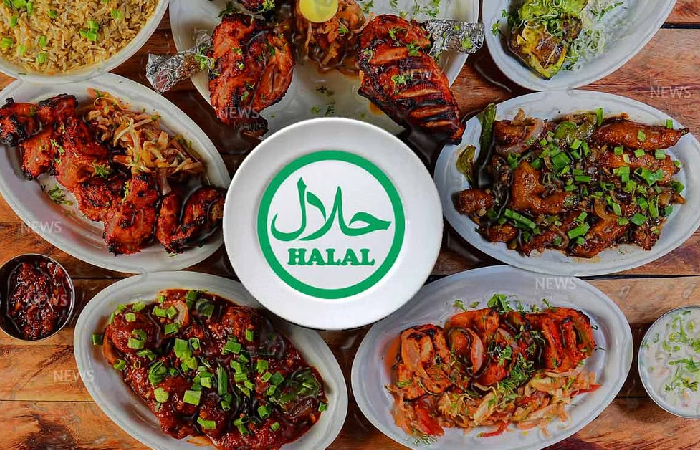
-
This might prevent consumers with low incomes from purchasing them. Furthermore, some halal certification agencies could have rigid specifications that some companies can't meet.
-
To make sure that the halal industry develops in a way that is advantageous to all customers, it is crucial to be aware of these potential hazards.
Promoting true ethical and halal behaviors is largely the responsibility of consumers. Consumers can take the following actions, for example:
-
Asia Pacific is home to the majority of the world's Muslims, who consume up to 90% halal food and drink, per study from ResearchAndMarkets.com for 2023. Halal meat, poultry, and seafood are in high demand and make up close to 50% of all market sales worldwide.
-
Educate oneself on halal practices and food. Online and in libraries, there are many materials to choose from. Making educated decisions regarding the food they eat and the things they buy will be made easier for customers if they have more knowledge about halal.
-
Encourage halal companies. Consume halal cuisine and purchase halal goods. By doing this, you'll be able to support halal companies and increase everyone's access to halal food.
-
Look for the halal seal of approval. Look for the halal certification logo while buying halal food goods. This will assist in confirming the authenticity of the halal status of the goods you are buying.
-
Make inquiries. If you're not sure if a product is halal, ask the company for clarification. This will ensure that companies are serving the needs of their clients and assist spread awareness about halal foods and procedures.
-
Be sure to share your opinions about halal businesses, whether they were good or bad. This would enable firms to enhance their goods and services and better serve their clientele.
The potential global impact if the halal industry's ethical standards become mainstream
Halal Food Industry has a great potetial to create a global impact if its ethical standards become mainstream. The Halal food industry is fragmented and home to many small businesses.
Financing vertical integration of the supply chain, from slaughterhouses to distributors, is a business opportunity that should offer profitable returns to investors as well as the growth of potent firms in this industry.
The impact of halal industry is already rising in Asia pacific regions.
If food manufacturers fully complied with the principles of Halal and Tayyib as in the precepts of Islam, halal food has the potential to become the international standard for healthy, safe, and humane food.
Muslim consumers, particularly the younger millennial age, are beginning to exhibit an increased global demand for organic and natural food.
-
Global product launches with halal claims increased by 19% between 2018 and 2020, from 16,936 products to 20,482. Africa and the Middle East both had low double digits (14% and 10%, respectively), whereas Asia made up 63% of them.
-
Malaysia has led the Global Islamic Economy Indicator (GIEI) For seven years straight. The following four countries on the list are Saudi Arabia, the United Arab Emirates, Indonesia, and Turkey.
-
Muslim consumers seeking out convenient, flavorful, and healthful meals that can be delivered have sped up digital change.
-
Grocery e-commerce and home deliveries increased, creating new opportunities for the delivery of halal meals and groceries, including halal cloud or ghost kitchens.
-
On-demand delivery provider Getir in Turkey seizes this chance. In 2021, the business raised US$129 million in Series B funding, US$300 million in Series C funding, and US$555 million in Series D funding to support its further expansion into Paris, Berlin, and a few U.S. locations.
-
Apps that are related to halal food are also very popular. For instance, the Saudi Arabian delivery firm Jahez secured US$36 million for the commission-free halal food ordering service DeliverDXB, which debuted in Dubai in March.
-
In the UAE, food producer Al Islami Foods increased the variety of foods it offers by launching a frozen paratha (flatbread) and a plant-based beef burger without preservatives in 2021.
-
In order to serve the retail and foodservice sectors under its Harvest Gourmet brand, Nestlé constructed its first plant-based manufacturing facility in Selangor, Malaysia, in 2021.
-
Another area of possibility is alcohol-free beverages, which had a global 32% rise in new product development between 2018 and 2019. The market for low- or no-alcohol beverages in APMEA is expected to develop at a 7% CAGR between 2019 and 2025.
-
Health and governmental rules are driving the regional trend, and beer is the main industry to develop. Between 2014 and 2024, the non-alcohol beer market is predicted to rise by 18.9%.
It is highly likely that the developing halal markets will play increasingly significant roles in the established markets of the Middle East and Asia as the dynamics within the Muslim world change and globalization trends continue to shape consumers' tastes, habits, and spending patterns worldwide. This will be especially true by influencing global corporate halal strategies.
The halal market is expanding quickly and is anticipated to do so in the years to come. The global halal business may draw new investment and generate new jobs if its ethical standards catch on.
The ethical standards of the halal industry could have a very favorable overall impact on the world. The ethical requirements of the halal business have the potential to enhance animal care, labor practices, sustainability, accountability, and transparency while fostering diversity and inclusion. The moral standards of the halal industry may potentially have a favorable effect on the world economy.
Conclusion
The availability of halal food encourages cross-cultural interaction and harmony by bringing individuals from many backgrounds and religions together to share a similar experience. Another indication of the increasing significance of cultural diversity is the rising demand for Halal food.
There is no denying that many Westerners' lives nowadays also depend on or at least desire Halal cuisine. Inclusion and cultural variety go hand in hand with the positive experiences associated with these goods and services.
Businesses must devise strategies to satisfy the requirements and preferences of their customers as the world's population continues to diversify. They ought to capitalize on this development by supplying more Halal goods and services.
For customers of various faiths, halal ice cream and other goods are a terrific option. They are manufactured in compliance with Islamic dietary standards, which place a strong emphasis on justice, equity, animal welfare, environmental protection, openness, and accountability.
These are some hints for locating and promoting halal ice cream and other products:
-
look for the halal certification symbol. By using this emblem, consumers can be certain that a product has received a reliable halal certification.
-
Find out if your neighborhood supermarket or eatery sells ice cream and other goods that are halal. To accommodate the rising demand, a lot of shops and eateries now provide halal selections.
-
Encourage halal companies. There are numerous halal companies that manufacture premium ice cream and other goods.
Regardless of your religious affiliation, I urge you to research and promote halal ice cream and other items. halal products are created as per Islamic dietary regulations, which place a strong emphasis on fairness, equity, animal welfare, environmental stewardship, openness, and responsibility.
Halal ice cream and other goods are frequently of excellent quality and delectable. You are sure to find a flavor you like. This is because there is a huge selection of halal ice cream flavors available.
You should sample a few halal ice cream products to find out why they are so well-liked. You would be surprised to know how good halal ice creams could be.
Reading And References
Here are several publications on halal, ethical eating, and sustainable agriculture:
Books:
- Halal Food: A Complete Guide by Muhammad S. al-Munajjid
- Sustainable Food Systems: Building a New Paradigm by Rick A. Pirog, Jules N. Pretty, and J. Iain Macgregor
- Ethical Eating: A Guide to Making Moral Choices About What We Eat by Peter Singer
- Eating Animals by Jonathan Safran Foer
- Omnivore's Dilemma: A Natural History of Four Meals by Michael Pollan
Articles:
- What is Halal Food? by BBC Food
- Sustainable Farming: What It Is and Why It's Important by the National Resources Defense Council
- Ethical Consumption: What It Is and Why It Matters by the World Wildlife Fund
- The Halal Food Market: A Growing Opportunity for Sustainable Business by Green Prophet
*Ethical Food Consumption: A Guide for Non-Muslims by The Guardian
Here is a list of halal ice cream brands for consumers to try:
- Al Saraya (UAE)
- Millac (Malaysia)
- Haagen-Dazs (Global)
- Baskin-Robbins (Global)
- Ben & Jerry's (Global)
- Magnum (Global)
- Cornetto (Global)
- Walls (Global)
- Vadilal (India)

Organizations and certifications promoting ethical food practices globally
Organizations
1. Fair Trade international: A global organization, Fairtrade International aims to guarantee that farmers and workers in underdeveloped nations get a fair price for their goods. Numerous foods and beverages, such as coffee, chocolate, bananas, and sugar, are among the Fairtrade-certified products.
2. The Rainforest Alliance: is a global non-profit organization that strives to change consumer behavior, business practices, and land usage. This is done to protect biodiversity and advance sustainable lives. Products with the Rainforest Alliance certification include bananas, coffee, chocolate, and tea.
3.Marine Stewardship Council (MSC): A worldwide non-profit group called the Marine Stewardship Council (MSC) strives to advance the management of sustainable fisheries. Seafood that bears the MSC certification was caught in fisheries that had their sustainability criteria reviewed independently.
4. Global Food Safety Initiative (GFSI): GFSI is a global organization that awards programs that uphold food safety criteria. It is a voluntary certification scheme that aids businesses in guaranteeing the customer safety of their food goods.
5. British Retail Consortium (BRC): Providing certification programs for food safety, quality, and ethical manufacturing, the British Retail Consortium (BRC) is a preeminent global standards-setting organization. One of the most popular food safety standards in use today is the BRC Global Standard for Food Safety.
Certifications:
1. Food Alliance: Food Alliance is a nonprofit group that strives to build a more just and sustainable food system. For social responsibility, environmental protection, and animal welfare, Food Alliance-certified farms and businesses must uphold strict requirements.
2. B Corporation: A certification program for companies that uphold high standards of social and environmental performance, accountability, and openness. B Corporations pledge to use their company to improve the world.
3. Global Reporting Initiative (GRI): Providing a platform for firms to report on their sustainability performance is the Global Reporting Initiative (GRI), a non-profit organization. In order to report on their environmental, social, and economic consequences, enterprises of all kinds adopt the GRI Standards.

